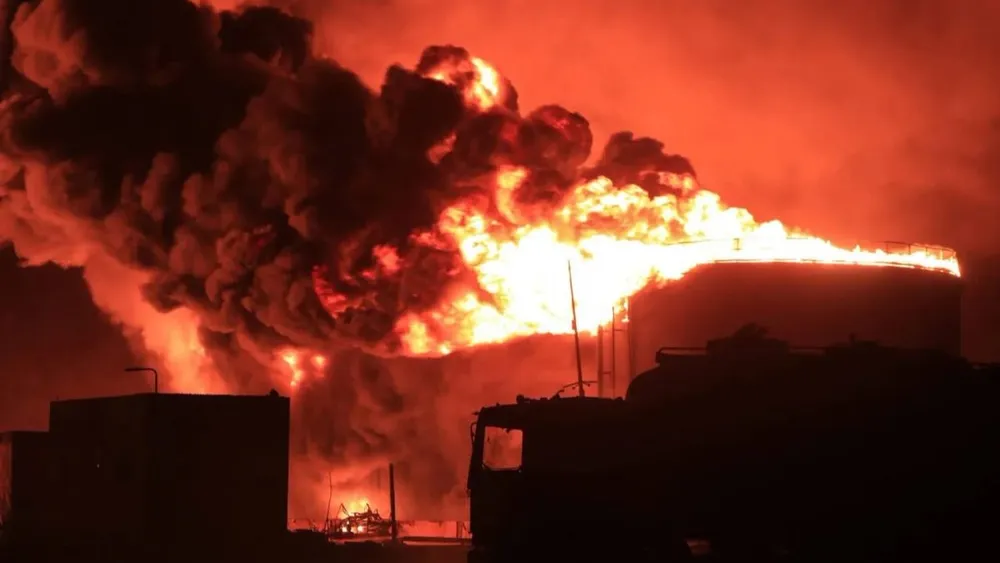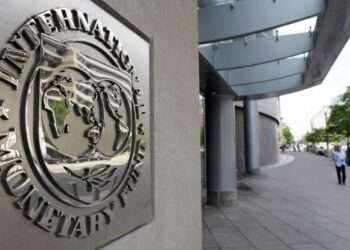Israel has carried out strikes against Houthi targets in Yemen, attacking ports and a power plant around midnight local time Sunday night into Monday morning.
Israel struck the ports of Hodeida, Ras Isa, Salif and the Ras Kanatib power plant along the Red Sea. It also struck the Galaxy Leader, a cargo ship seized by the Houthis in November 2023.
According to the Israel Defense Forces (IDF), the strikes come after at least three Houthi ballistic missiles were launched at Israel after the Israel-Iran ceasefire, including one missile that was intercepted on Saturday, July 5, 2025.
The IDF said in a statement following the strikes, “Houthi forces installed a radar system on the ship and have been using it to track vessels in the international maritime arena to facilitate further terrorist activities.”
A short time before the wave of strikes on Yemen, the IDF’s Arabic language Spokesman, Avichay Adraee, issued an evacuation warning for the ports and the power station.
Defense Minister, Israel Katz disclosed that the strikes were part of the newly named Operation “Black Flag.”

In a statement on social media, Katz asserted that the Houthis will continue to “pay a heavy price for their actions.” He promised that more attacks would follow if the Houthis kept launch drones and ballistic missiles at Israel.
In a short statement, the Houthi military confirmed the strikes but said, “Yemeni air defenses effectively confronted the Israeli aggression,” using, “a massive barrage of locally manufactured surface-to-air missiles.”
A Spokesman for the Houthis, Ameen Hayyan Yemeni, meanwhile, said in a post on X that the group’s air defences forced “a large portion” of Israel’s warplanes to retreat.
He iterated that locally-manufactured surface-to-air missiles were used to respond, “causing great confusion among enemy pilots and operations rooms.”
There are no immediate reports of casualties from the strikes.
According to the Houthi-run Al-Masirah TV, Houthi political bureau member, Mohammed Al Farah said that targeting Yemeni ports, power stations, and other “civilian facilities is an attempt to harm civilians and has no connection to any military activity.”
Houthis Retaliate

The rebel group, which controls Yemen’s most populous areas, responded to the latest Israeli attacks by launching more missiles at Israel in the early hours of today, Monday, July 7, 2025.
The Israeli military said that two missiles were fired from Yemen, and that it attempted to intercept the projectiles. The attack set off sirens in the cities of Jerusalem, Hebron and near the Dead Sea.
Israel’s emergency service said that there have been no reports of injuries or impact from the projectiles.
The latest escalation comes at a sensitive moment in the Middle East as a possible ceasefire in Israel’s war on Gaza hangs in the balance, and as Tehran weighs whether to restart negotiations over its nuclear programme following United States air strikes that damaged Iran’s most sensitive atomic sites.
The Houthis, who hold control over Sanaa as well as large parts of western and northern Yemen, have been carrying out missile and drone attacks against Israel since November 2023, following the start of Israel’s war on Gaza.
The Houthis claim their attacks on Israel are in solidarity with Palestinians in Gaza who are under Israeli attack. The group has fired hundreds of missiles at Israel and launched more than 100 attacks on commercial vessels in the vital Red Sea corridor, since Israel’s war on Gaza began in 2023.
The Houthis paused their attacks after a ceasefire between Hamas and Israel in January, but resumed them after the United States launched attacks on Yemen on March 15, killing nearly 300 people in the weeks that followed.
READ ALSO: IMANI Blames Electoral Commission for Breakdown in Ablekuma North



















